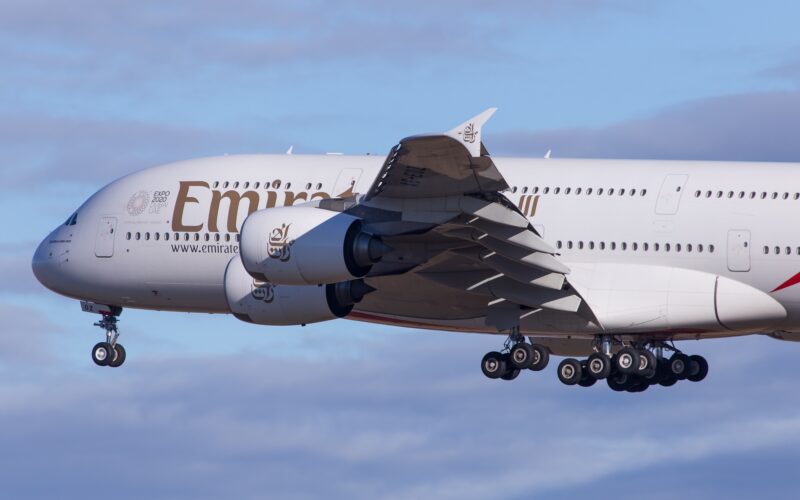Tim Clark, President of Emirates, has said that he is unfazed by the potential of Riyadh Air, welcoming new competition in the Middle East market.
Speaking to reporters on the sidelines of the World Aviation Festival 2023 event, Clark recognized that Emirates was the pioneer of the business model with suites, having begun its operations in October 1985, some 37 years ago.
“I have been asked when Qatar [Airways] came along, when Etihad [Airways] came along, ‘Is there room for this, is there room for that?’”
At the pace that the global economy was moving prior to the Global Financial Crisis (GFC) in 2008/2009, there was space, according to Clark, for three or four more airlines like Emirates, “and you would still [have aircraft] full because [the economy] was moving at such a pace”.
While the executive admitted that there were reasons why that scenario collapsed, he also noted that there was a major shift in economic power towards the Middle East.
“There are countries like Saudi Arabia [that want] to spend trillions on developing their economy,” he said.
According to Clark, his counterpart, namely Riyadh Air’s Chief Executive Officer (CEO) Tony Douglas, was “full of confidence in the belief that he can do what he has been required to do: bring 100 million tourists to Saudi Arabia by 2030”.
“I have said to my boss ‘Bring it on’,” Clark remarked, adding that spending those trillions will result in everybody in the region benefiting from Saudi Arabia’s growth goals. “It is like a gravitational pull,” he said.
“Going forward, does it faze me now? On the contrary, I think how we are going to be able to deal with all of this [growth],” Clark stated.
Belief in the hub model
Clark reiterated his belief in the hub-and-spoke business model, which has been utilized by Emirates.
“I’m one of those people who believes in the power of the hub,” the Emirates President detailed. He later added that he was speaking with Airbus as early as 1999, when the airline was extrapolating on its operations to London Heathrow Airport (LHR) going forward several years.
“And on the basis of a linear extrapolation, we needed a 1200-seater in 2008,” the British executive remarked. “[Airbus] gave us a 500-seater and we moaned like hell.”
Had Emirates owned that 1200-seat aircraft, the airline would have filled it, Clark claimed.
“I promise you that,” he said. “We are able to feed 100 flights all over the network into one A380 going to Amsterdam or London.”
According to the President of Emirates, a problem will arise when the A380 is inevitably retired. “They are not minded to build another one. I have tried to suggest there are very, very good environmental reasons why we should build a bigger one and a better one,” he said.
“Of course, I am considered as mad as a hatter, bonkers, whatever it maybe,” Clark noted. “The fact of the matter is, it’s simple economics.”
Calls for a new aircraft
Clark suggested that LHR, New York John F. Kennedy International Airport (JFK), Newark Liberty International Airport (EWR) and Lisbon, where the event itself was taking place, “cannot take any more traffic”.
“This is the demand as it is today, and now extrapolate that to 2030, 2040 or 2050, and if you have the same situation, […] you are going to flatline what is on offer,” Clark explained.
The executive continued, saying that with an ever-growing global population and subsequent demand growth for air travel, there can be no resolution to the current capacity-constricted airport situation, other than building a “bigger aircraft that would be more fuel efficient and will take more people at lower fuel costs, lower emissions, because that is the only way”.
“How many new airports will be built in [the United States]?” he asked rhetorically.
Clark mentioned that “one A380 is two and a half [Boeing] 787-9s, […] that occupy precious slots, which you do not have”.
“Produce a fuel-efficient, lightweight, using UltraFan propulsion technologies, which in the mid 2030s, [will] probably be delivering a lot more power [with] less fuel,” he stated, adding that “it cannot be done yet”, but that the “technology will take us there”.
The Emirates President noted that the whole industry is currently focused on sustainability, with less focus on innovation.
“They are not mutually exclusive,” he noted. “If you get both right, you have hit the sweet spot,” Clark concluded.

